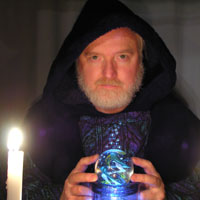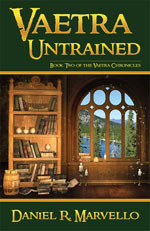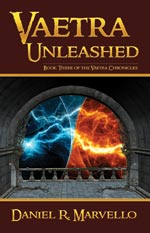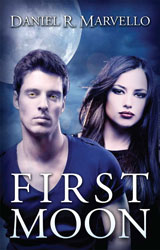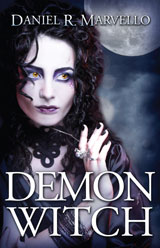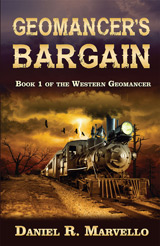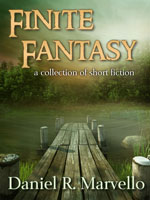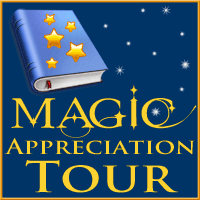 I’m currently going through the beta reader comments I got back for First Moon. I’m happy to say that I have a great crew of beta readers who have done a lot to help me make my books better.
I’m currently going through the beta reader comments I got back for First Moon. I’m happy to say that I have a great crew of beta readers who have done a lot to help me make my books better.
The feedback for First Moon also helped me clarify some things about what I’m trying to achieve with my writing. Foremost among those epiphanies was that I have to write the kind of stories I want to read.
But what does that mean? How would I define my writing “mission statement?” If I could answer that question, I might finally be able to craft a decent “tag line” for myself. So, I spent some time comparing and contrasting The Vaetra Chronicles versus First Moon. A couple of patterns emerged…
Heroes Don’t Have to be Alpha Males
One of my beta readers expressed concern that Kyle, my lead character in First Moon, is not “alpha” enough. She pointed out that contemporary fantasy readers are used to getting a vampire slaying (or pick the intense action moment of your choice) on the first page and a kick-ass female or male hero for the rest of the story.
If she’s right, the story is doomed. Kyle is a regular guy who finds himself in an extremely irregular position. His story is about his struggle to reclaim his life while dealing with paranormal circumstances he has trouble accepting.
However, I believe regular guys can become heroes too. Kyle is not a confident, hunky, alpha male with a billion dollars in the bank. He’s also not a tortured superhero with a mysterious and tragic past. Frankly, I don’t like the first kind of character, and I’m tired of the second.
Fortunately, Kyle has precedent. Peter Parker was not an alpha male. Clark Kent was not an alpha male. Spiderman and Superman were heroes largely because of their values. If not for those values, their abilities would have made them super villains, not heroes. I’d argue that you are more likely to get benevolent values from a beta male than an alpha male, if the examples our society provides are any guide.
But honestly, being a beta male myself, it’s much easier for me to relate to a beta male character. Jaylan (my lead character from The Vaetra Chronicles) and Kyle are both regular guys in their respective worlds who must rise to the occasion when things get out of control. They don’t handle everything perfectly, but they do the best they can.
The Journey is the Destination
I have a t-shirt with the above sentiment printed on it. Being a “stop and smell the roses” kind of guy, I get a lot of entertainment from simple things. I love rocks, plants, and all kinds of animals. I can spend ages watching the birds flit around the yard and play splashies in the birdbath.
In my stories, I try to get a across a sense of what it’s like to be where the characters are. That involves a certain amount of description, which I try to intersperse with the action and deliver through the emotional and sensory filters of my characters.
One of my beta readers routinely points out any bit of description that appears to be disposable. When you get right down to it, most description is not essential to the story. Every writer has to decide on the balance of description to action, and that decision is one of the things that defines the writer’s style.
Readers have their own preferences, of course. Some want nothing but edge-of-the-seat, non-stop action and suspense. Any description slows the pace unacceptably. Other readers love stories that are laden with description. They are willing to linger in peace with the characters for a while. Most readers probably fall somewhere between those extremes.
My style reflects my preferences as a reader. I love a consistent and well-presented story world. I like enough description to give me a sense of place. I like getting details about how things work or what something is like, as long as it comes to me through the experiences of the characters. The detail about how long the spines are on a cactus doesn’t become relevant until the character bumps into them. As long as I feel like the story is moving forward, rich, sensory details are welcome.
It is what it is
Lucky for me, I’m not the only reader who enjoys the kind of stories that I like to write. I’m not writing for the masses. I’m writing for the readers who think my stories are cool. Since we share similar tastes in reading material, I believe my readers are cool in return.
Even though we disagree sometimes, my beta readers are cool too. On top of the awesome feedback that I’ve taken to heart, they’ve given me a lot of insight into what’s important to me in a story. I welcome all of their feedback because I believe that understanding why I disagree about something is an important part of my growth as a writer.
* * *
If you liked this article, you might enjoy the other articles in my Beta Lessons series. Click here to see all of them.
